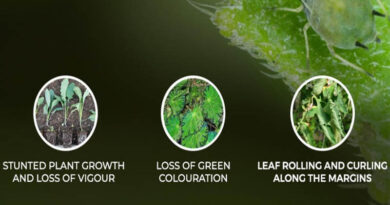
Over 1,500 Industry Leaders Gathered at the 7th China Egg Industry Conference
13 November 2025, Shanxi: Over 1,500 industry leaders gathered at the 7th China Egg Industry Conference to address critical challenges and explore pathways for the sector’s evolution toward large-scale, branded, digitalized, and intelligent production systems.
As one of the most influential national conferences in the egg industry, the October 26-28 summit drew representatives from over 800 enterprises. The event brought together government, industry, academia, and research institutions to strengthen the industrial ecosystem and navigate mounting pressures—from domestic overcapacity and historic price lows to rising international welfare standards.
The opening ceremony was hosted by Wang Zhongqiang, President of Beijing Egg Processing and Sales Industry Association. Guest speakers sketched out a roadmap for industrial development across policy guidance, technological support, industrial coordination, and value enhancement, emphasizing the need for deeper integration across the industrial chain.
With egg prices hitting their lowest point this year, the Forum on Egg Pricing Logic and Future Pricing Model emerged as a critical highlight. Major industry players engaged in substantive discussions on factors affecting egg pricing, problems in current pricing models, and pathways to a more scientific mechanism. The forum laid groundwork for rational pricing logic that supports stable market operations and sustainable industry development—urgent priorities as producers seek viable paths forward amid severe price volatility.
The Cage-Free Symposium, sponsored and organized by Lever China, drew approximately 200 attendees including leading cage-free egg producers and major egg producers with cage-free capacity. “Chinese producers who adopt cage-free systems position themselves at the forefront of international trade and premium market segments,” said Mutzu Huang, Program Director at Lever China. “This represents a strategic opportunity for leapfrog development.”
Major importers including the European Union, United States, and key Asian markets are tightening welfare standards, making cage-free certification increasingly necessary for market entry. “We’re witnessing a fundamental shift in global procurement policies. Multinational food companies, hotel chains, and retailers are implementing cage-free commitments across their supply chains,” Zhongqiang said. “Producers who transition now can capture these high-value contracts before competitors, and before cage-free shifts from opportunity to requirement.”
The symposium highlighted significant momentum in China’s cage-free transition. Throughout 2025, leading domestic brands across multiple sectors have committed to sourcing only cage-free eggs and chicken. Major players operating over 2,250 stores combined across hotpot, café, casual dining, and pizza chains—plus seasoning manufacturer Du Feng Xuan, whose ingredients reach more than 2,000 restaurant chains worldwide—have pledged comprehensive cage-free transitions.
On the production side, egg producers Han Wei and Shizu Black Hens are constructing new cage-free facilities that will improve living conditions for 120,000 egg-laying hens, supported by Lever China’s technical assistance.
Cage-free farming allows hens to move freely, nest, forage, and socialize—natural behaviors impossible in conventional battery cages. This approach produces healthier hens and higher-quality eggs. Industry experts presented concrete implementation strategies, demonstrating how intelligent monitoring systems and precision nutrition management make cage-free operations both welfare-friendly and economically viable. These technologies optimize flock health, reduce mortality rates, and improve feed conversion—addressing profitability concerns that have historically slowed adoption.
With several countries experiencing egg supply shortages while China maintains robust production capacity, cage-free certification could unlock lucrative export opportunities unavailable to conventional producers.
The conference concluded with strong consensus that comprehensive industry upgrading—from pricing mechanisms to production systems—is essential for high-quality development. Early adopters of welfare-friendly systems will capture premium market positioning and set competitive standards.
“This marks a turning point toward a more ethical and sustainable food system in China—one where humane poultry sourcing is becoming the standard rather than the exception,” Huang said.
📢 If You’re in Agriculture, Make Sure the Right People Hear Your Story.
From product launches to strategic announcements, Global Agriculture offers unmatched visibility across international agri-business markets. Connect with us at pr@global-agriculture.com to explore editorial and advertising opportunities that reach the right audience, worldwide.






